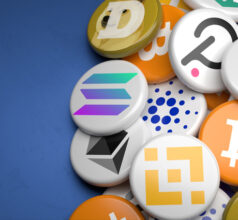Ethereum gas is an essential component of the Ethereum network that plays a crucial role in its operational efficiency and security. Gas is essentially the unit used to measure computational requirements and quantify the computational effort required to perform an operation or execute a smart contract on the Ethereum blockchain. Understanding the importance of Ethereum gas is vital for anyone looking to interact with the network.
Why is Ethereum Important in the Future?
Gas is important because it incentivizes miners on the Ethereum network. When a user wants to execute a transaction or run a smart contract, they must pay a certain amount of gas, which is in turn collected by the miners as a fee. This ensures that miners are motivated to validate and process transactions promptly, ultimately enhancing the network’s overall performance and security.

Gas is crucial for preventing spam and denial-of-service attacks on the Ethereum network. By requiring users to pay for the computational resources they consume, the network discourages malicious actors from overloading the system with unnecessary or fraudulent transactions. Gas acts as a deterrent, encouraging users to prioritize their transactions based on their importance and ensuring the smooth operation of the network.
Gas also helps allocate resources efficiently and fairly among users. Since each operation on the Ethereum network has a gas cost associated with it, users can gauge the complexity and efficiency of their transactions based on the gas price. This aids in optimizing transaction costs and determining the most cost-effective way to execute smart contracts or perform transactions, benefiting both users and the network as a whole.
Ethereum gas is a fundamental aspect of the Ethereum network that serves several crucial purposes. It incentivizes miners, protects the network from spam attacks, and allocates computational resources fairly and efficiently. Understanding the importance of Ethereum gas is essential for users wanting to interact with the network effectively and ensure the smooth functioning of the blockchain ecosystem.
What is your reaction to this?

 I liked it
I liked it Wonderful
Wonderful Thanks
Thanks Good
Good Hahaha !
Hahaha ! Incredible
Incredible Interesting
Interesting Wrong
Wrong

